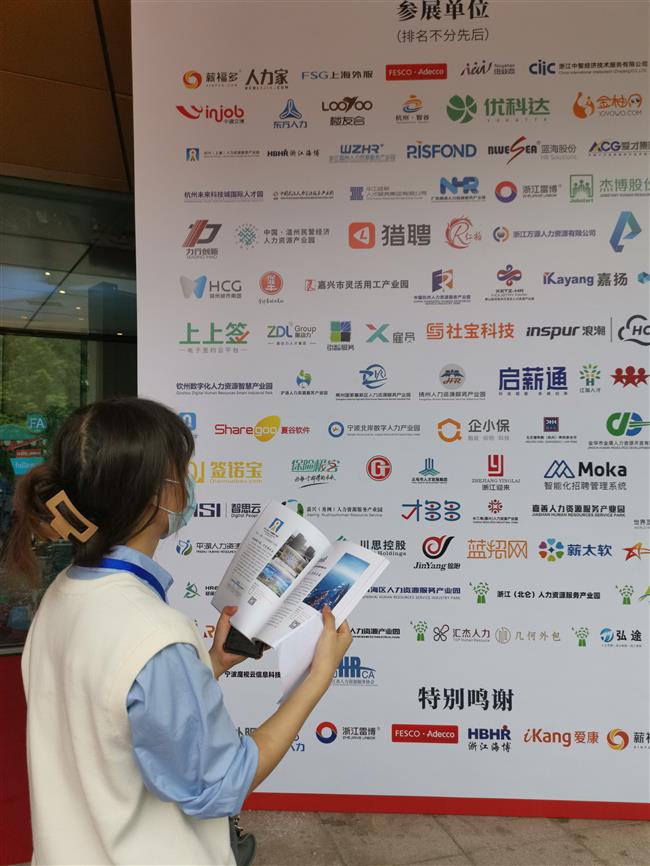Talent expo focuses on flexible employment

A job seeker browses a handbook with companies’ information at the talent expo last month in Hangzhou.
More than 200 human resources organizations, 300 companies and 10,000 industry insiders attended the 2020 China (Zhejiang) Human Resource Service Expo in Hangzhou last month.
As the highlight of the human resources industry in Zhejiang Province, the expo plays an indispensable role in recruiting professionals for governments and enterprises.
“The outbreak of COVID-19 caused a human resources crisis. In turn, the crisis has impacted the economy. Therefore, the expo this year is themed on ‘crisis coordination.’ We hosted conferences and seminars during the event to discuss solutions to such a crisis,” said Yuan Zhongwei, director of Zhejiang Human Resources Association.
This year, organizers used virtual reality technology to livestream the expo, drawing about 100,000 visitors online. Some companies jumped on the trend to recruit professionals via livestreaming.
Hangzhou Humi Tech Co invited two foreign hosts to livestream a job-hunting fair, elaborating job requirements through social media.
“Livestreaming can sell products and recruit talent,” said Deng Yahui, chief executive officer of Hangzhou Humi Tech Co. “Foreign hosts help cross-border companies look for overseas talent. It is much more convenient than traditional face-to-face job fairs, especially under the impact of COVID-19.”
During previous years, the expo put emphasis on recruiting outsourced and temporary employment, but it focused on flexible employment this year.
At the expo, FESCO Adecco showcased the “sharing workers” service to visitors in hope of attracting more young people.
During the worst period of the epidemic this year, some factories shut down temporarily, and their workers had to look for new temporary jobs through its service platform. When the factories resumed production, workers returned.
“The service boomed during the first half year. It balanced the shortage and surplus of human resources among different companies. People could manage their time flexibly, and companies could cut down labor costs,” said Lu Yu, marketing manager of FESCO Adecco in Zhejiang. “Thus far, we have already helped more than 35,000 people match with new jobs.”
This year, the expo was hosted in Jianggan District. It is an attractive area with plenty of high-tech companies and a favorable business environment.
















